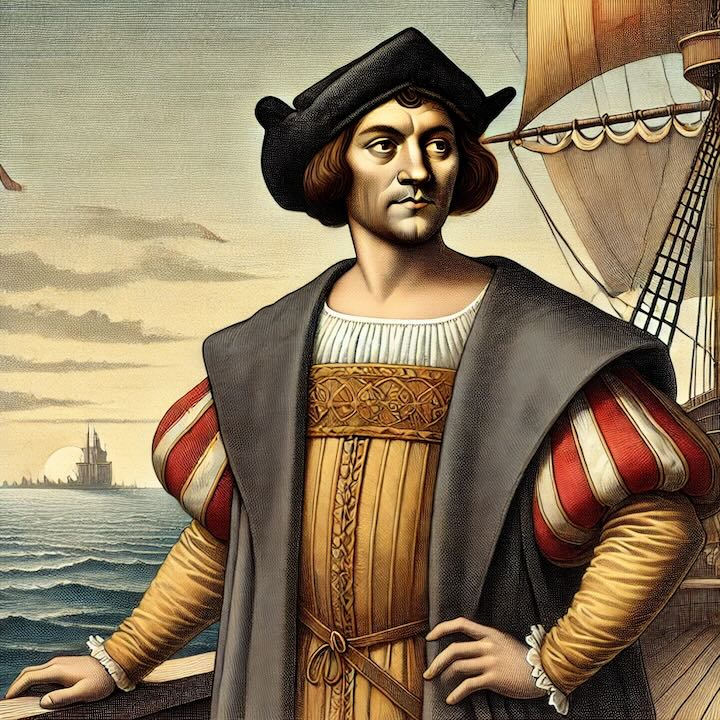
Genoa-born Columbus' quest to reach India by sailing Westward was financed by Isabella and Ferdinand of Spain in 1492. As a consequence of his pioneering voyage, Columbus is credited with the discovery of the New World..
Christopher Columbus, born between August 25 and October 31, 1451, in Genoa, Italy, is one of the most renowned explorers in history. His voyages across the Atlantic Ocean opened the way for European exploration and colonization of the Americas, fundamentally altering the course of world history.
Columbus was born to a wool weaver in Genoa and was largely self-educated. From an early age, he was drawn to the sea and became a sailor, eventually settling in Lisbon, Portugal, where he honed his navigational skills. Columbus was deeply influenced by the writings of Marco Polo and the idea that one could reach Asia by sailing westward across the Atlantic rather than the more traditional route around Africa.
In the 1480s, Columbus sought support for his ambitious plan to find a westward route to Asia. However, he faced rejection from various European monarchs, including those of Portugal, England, and France. Finally, in 1492, Columbus gained the backing of Spanish monarchs Ferdinand and Isabella, who provided him with the necessary ships and crew for his expedition.
On August 3, 1492, Columbus set sail from Palos de la Frontera with three ships: the Niña, the Pinta, and the Santa María. After a challenging journey, he and his crew sighted land on October 12, 1492, landing on an island in the Bahamas that Columbus named San Salvador. Believing he had reached the outskirts of Asia, Columbus referred to the indigenous people he encountered as "Indians."
Columbus made a total of four voyages to the New World between 1492 and 1504. During these expeditions, he explored parts of the Caribbean, including the islands of Cuba and Hispaniola, and reached the mainland of Central and South America. Although he never reached Asia as he had intended, his voyages had a profound impact. They paved the way for the widespread European exploration and colonization of the Americas and initiated an era of contact between the Old World and the New World.
Despite his achievements, Columbus's legacy is controversial. His voyages led to the exploitation and devastation of indigenous populations through violence, disease, and enslavement. He was a harsh governor of the territories he discovered, and his treatment of the native people led to his arrest and return to Spain in chains in 1500. Although he was eventually freed and allowed to return to the New World, his reputation suffered greatly.
Christopher Columbus died on May 20, 1506, in Valladolid, Spain, believing that he had found a new route to Asia rather than having discovered a new continent. His legacy is complex and remains the subject of debate. While he is celebrated by some as a great explorer and navigator, others view him as a figure whose expeditions brought about immense suffering and tragedy for the indigenous peoples of the Americas. Nonetheless, Columbus's voyages were a turning point in world history, marking the beginning of centuries of transatlantic exploration and colonization.
 >
>